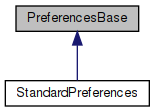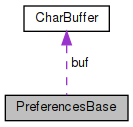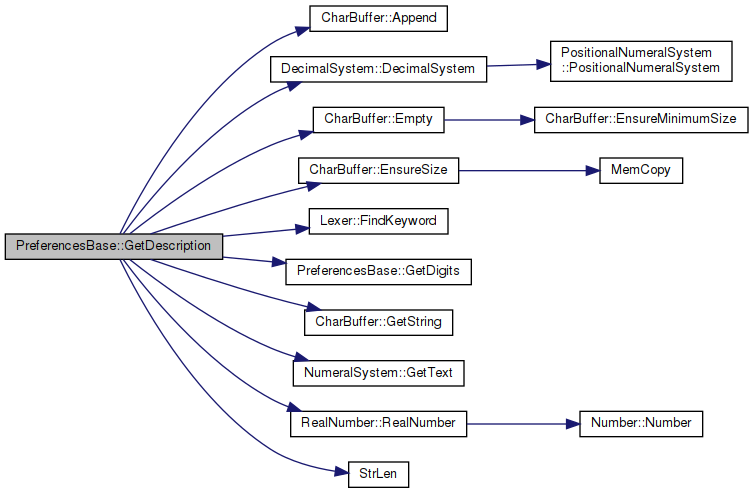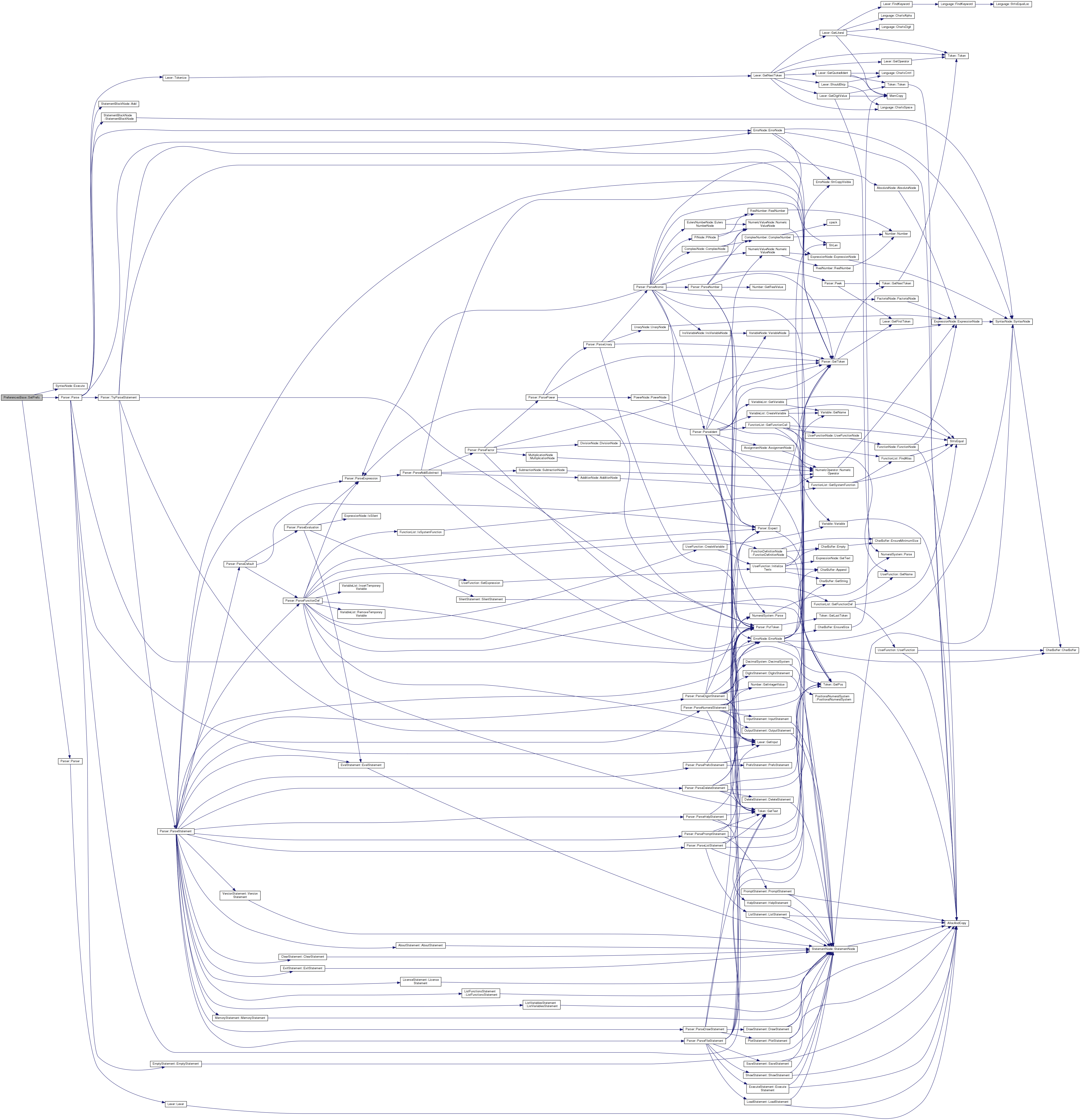#include <preferences.h>


Public Member Functions | |
| PreferencesBase () | |
| virtual | ~PreferencesBase () |
| char * | GetDescription () const |
| char * | GetPrompt () const |
| void | SetPrompt (const char *prompt) |
| int | GetDigits () const |
| void | SetDigits (int digits) |
| bool | GetRefactorNames () |
| void | SetRefactorNames (bool yes) |
| void | SetDefaults () |
| virtual bool | Load ()=0 |
| virtual bool | Keep ()=0 |
| virtual bool | Save ()=0 |
Static Protected Member Functions | |
| static void | SetPrefs (char *prefs) |
Private Attributes | |
| CharBuffer * | buf |
| char * | prompt |
| int | digits |
| bool | refactorNames |
Detailed Description
Definition at line 35 of file preferences.h.
Constructor & Destructor Documentation
◆ PreferencesBase()
| PreferencesBase::PreferencesBase | ( | ) |
Definition at line 41 of file preferences.cpp.
References buf, CharBuffer::CharBuffer(), and SetDefaults().

◆ ~PreferencesBase()
|
virtual |
Definition at line 47 of file preferences.cpp.
Member Function Documentation
◆ GetDescription()
| char * PreferencesBase::GetDescription | ( | ) | const |
Definition at line 60 of file preferences.cpp.
References CharBuffer::Append(), buf, DecimalSystem::DecimalSystem(), CharBuffer::Empty(), CharBuffer::EnsureSize(), Lexer::FindKeyword(), GetDigits(), CharBuffer::GetString(), NumeralSystem::GetText(), prompt, RealNumber::RealNumber(), StrLen(), symdelimiter, symdigits, and symprompt.
Referenced by PrefsStatement::Execute().


◆ GetDigits()
| int PreferencesBase::GetDigits | ( | ) | const |
Definition at line 118 of file preferences.cpp.
References digits.
Referenced by PrefsStatement::Execute(), GetDescription(), and Program::Program().

◆ GetPrompt()
| char * PreferencesBase::GetPrompt | ( | ) | const |
Definition at line 107 of file preferences.cpp.
References prompt.
Referenced by PrefsStatement::Execute(), and StandardProgram::Initialize().

◆ GetRefactorNames()
| bool PreferencesBase::GetRefactorNames | ( | ) |
Definition at line 128 of file preferences.cpp.
References refactorNames.
Referenced by FunctionNode::GetNodeText().

◆ Keep()
|
pure virtual |
Implemented in StandardPreferences.
Referenced by PrefsStatement::Execute(), and Program::~Program().

◆ Load()
|
pure virtual |
Implemented in StandardPreferences.
Referenced by PrefsStatement::Execute(), and StandardProgram::Start().

◆ Save()
|
pure virtual |
Implemented in StandardPreferences.
Referenced by PrefsStatement::Execute().

◆ SetDefaults()
| void PreferencesBase::SetDefaults | ( | ) |
Definition at line 53 of file preferences.cpp.
References AllocAndCopy(), digits, prompt, and refactorNames.
Referenced by PreferencesBase().


◆ SetDigits()
| void PreferencesBase::SetDigits | ( | int | digits | ) |
Definition at line 123 of file preferences.cpp.
References digits.
Referenced by DigitsStatement::Execute().

◆ SetPrefs()
|
staticprotected |
Definition at line 93 of file preferences.cpp.
References SyntaxNode::Execute(), Parser::Parse(), and Parser::Parser().

◆ SetPrompt()
| void PreferencesBase::SetPrompt | ( | const char * | prompt | ) |
Definition at line 112 of file preferences.cpp.
References AllocAndCopy(), and prompt.
Referenced by Program::SetPrompt().


◆ SetRefactorNames()
| void PreferencesBase::SetRefactorNames | ( | bool | yes | ) |
Member Data Documentation
◆ buf
|
private |
Definition at line 56 of file preferences.h.
Referenced by GetDescription(), PreferencesBase(), and ~PreferencesBase().
◆ digits
|
private |
Definition at line 58 of file preferences.h.
Referenced by GetDigits(), SetDefaults(), and SetDigits().
◆ prompt
|
private |
Definition at line 57 of file preferences.h.
Referenced by GetDescription(), GetPrompt(), SetDefaults(), SetPrompt(), and ~PreferencesBase().
◆ refactorNames
|
private |
Definition at line 59 of file preferences.h.
Referenced by GetRefactorNames(), SetDefaults(), and SetRefactorNames().
The documentation for this class was generated from the following files:
- src/system/preferences.h
- src/system/preferences.cpp
